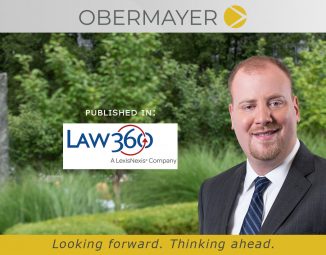Employer Accountability When COVID 19 Related Leave (FFCRA Leave) From Work Is Requested
On June 5, 2020, our COVID-19 Response Team published an Alert listing the circumstances upon which an employee would qualify under the Families First Coronavirus Response Act (“FFCRA”) for leave from work. To briefly reiterate, FFCRA created two (2) new types of leave for employees at companies with less than 500 people: Emergency Paid Sick Leave (6 eligibility categories) and Emergency Paid Family and Medical Leave Expansion Act Leave (1 eligibility category).
Once leave is requested, what actions must an employer take to document such leave under FFCRA?
For any type of leave taken under FFCRA, employers must document: (I) the name of the employee taking the leave; (II) the dates for which such leave is requested, and actually granted; and (III) a statement that the employee is unable to work or telework because of the FFCRA eligible reason that they designate.
Employers must also record a statement from the employee concerning the reason for their FFCRA eligibility. However, the content and nature of this statement, and what the employer is permitted to ask or not ask for, will vary depending on that employee’s specific, qualifying reason. After reading the following list, many employers may find themselves questioning why so little is required in order to grant FFCRA leave, as compared to other types of leave like pre-existing FMLA leave. Congress made this purposeful decision when it passed FFCRA, with the rationale being that this unique type of leave needed to be effectuated expeditiously in the midst of a pandemic.
Under the Emergency Paid Sick Leave portion of FFCRA, the employer must obtain the following:
A. If the employee is subject to a federal, state, or local quarantine or isolation order related to COVID-19, the employee must provide the name of government entity that issued the order. Although the employer may also request a copy of the government order, the employee is not obligated to provide it in order to receive leave for this reason.
B. If the employee has been advised by a healthcare provider to self-quarantine due to concerns related to COVID-19, the employee must provide the name of the healthcare provider who advised the employee–to self-quarantine. Although the employer may also request a note from the health care provider containing this directive, the employee is not obligated to provide it in order to receive leave for this reason under – FFCRA. (Note: The applies only to FFCRA. Employers may still be entitled to ask for doctor’s notes in other circumstances, e.g. the “Interactive Process” vis-a-vis the Americans with Disabilities Act.)
C. If the employee is experiencing symptoms of COVID-19 and seeking a medical diagnosis, then that statement alone is sufficient (no other documentation can be required). However, the employer may request: (1) identification of the COVID-19 symptoms the employee is experiencing; (2) whether the employee recently traveled and whether the employee has had any known exposure to a person who tested positive; (3) a medical diagnosis, once obtained supported by a health care provider’s note; and (4) a note from the health care provider if the employee is advised to self – quarantine. The caveat here is that the employer is not entitled to receive anyof these things from an employee seeking leave under this reason. All the employer can do is ask.
D. If the employee is caring for an individual who is subject to (A) or (B) above, the employee must provide (1) the name of the individual for whom the employee is caring; (2) the employee’s relationship to that individual; and (3) the name of the government entity or healthcare provider that required the quarantine. Although the employer may also request a copy of the governmental order or a copy of the health care provider’s documented advice, the employee is not obligated to provide either in order to receive leave for this reason.
If you’re paying close enough attention at this point, you’ll notice that above, we’ve only covered 4 of the 6 Paid Sick Leave eligibility categories. Reason 6 is excluded entirely because it is a catchall provision that has not been activated by the Secretary of Health and Human Services (“HHS”), so it is functionally inoperative at this point. With reference to the 5th Paid Sick Leave eligibility category (unavailability of school/childcare due to COVID-19), we felt it prudent to list it last, as the requirements for it, and for the Emergency Paid Family and Medical Leave Act Expansion Leave, are the same.
E. If the employee is caring for their child due to a COVID-19-related school or care center closure, or care provider unavailability, the employee must – provide: (1) the name(s) and age(s) of their child(ren); (2) the name of the school, care center, or care provider that is unavailable for COVID-19 related reasons; and (3) a representation that no other person will be providing care for the child during the period for which the employee is receiving the leave. To the extent the child for whom the employee is caring for is over the age of 14, the employee must also state that special circumstances exist requiring the employee to provide care during daylight hours (the workday). If the child is age 18 or older, the employee must submit a statement that the child has a physical or mental disability and as a result, is incapable of self-care because of this disability. The employer may also request: (a) written communication from, or notice of closure posted on the website by, the school or place of care for reasons related to COVID-19; (b) written communication from the childcare provider regarding their unavailability to provide child care for reasons related to COVID-19; (c) a description of such special circumstances (if their child is over 14 years old); and (d) a certification from the disabled adult child’s health care provider (if their child is over 18 years old). However, again, the employer is not entitled to receive any of these additional items from an employee seeking leave under this reason. They can only ask for them, and the employee is free to deny these requests.
Ultimately, employers should limit their inquiry into a requesting employee’s reasons for FFCRA leave to the above permissible requests. FFCRA regulations make clear that employers cannot require additional documentation of an employee’s reason for leave, aside from what is listed above. After employers receive the requisite information, they are entitled to from requesting employees, businesses must collect and retain that information for their own records as well, each time FFCRA leave is taken.
Although businesses will not need to provide this documentation to the IRS when they eventually seek tax credits for the FFCRA leave they paid out, companies must maintain this information in their records for at least four (4) years following the date when the tax becomes due or is paid, whichever is later, in the event of a subsequent audit.
For more information about FFCRA or other employment related COVID-19 questions, please do not hesitate to contact an Obermayer attorney listed below.
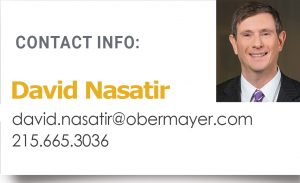
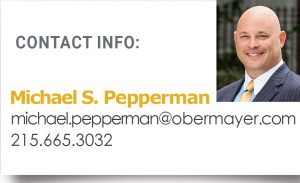
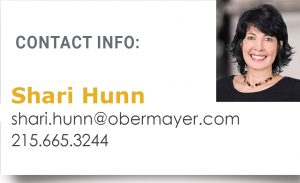
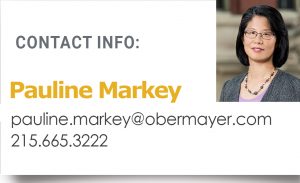
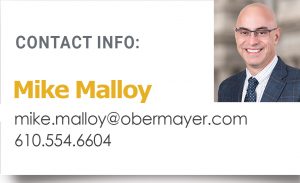
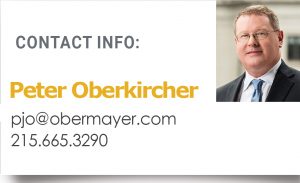
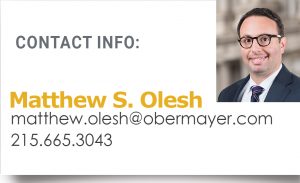
This alert is intended for general informational purposes only, and you are urged to consult your own attorney concerning your situation and specific legal questions you have. We are fully operational during this pandemic and stand ready to assist as you navigate this ongoing and developing COVID-19 situation.



